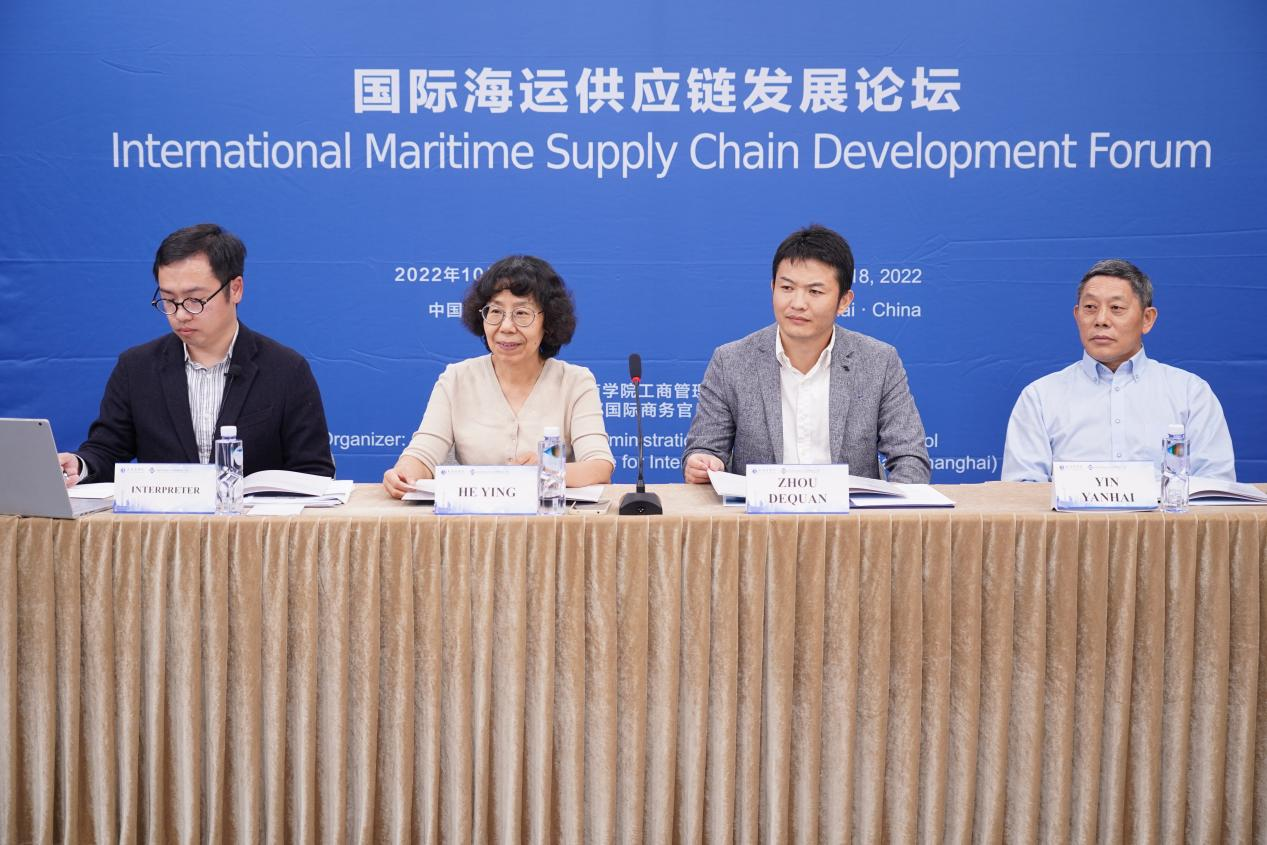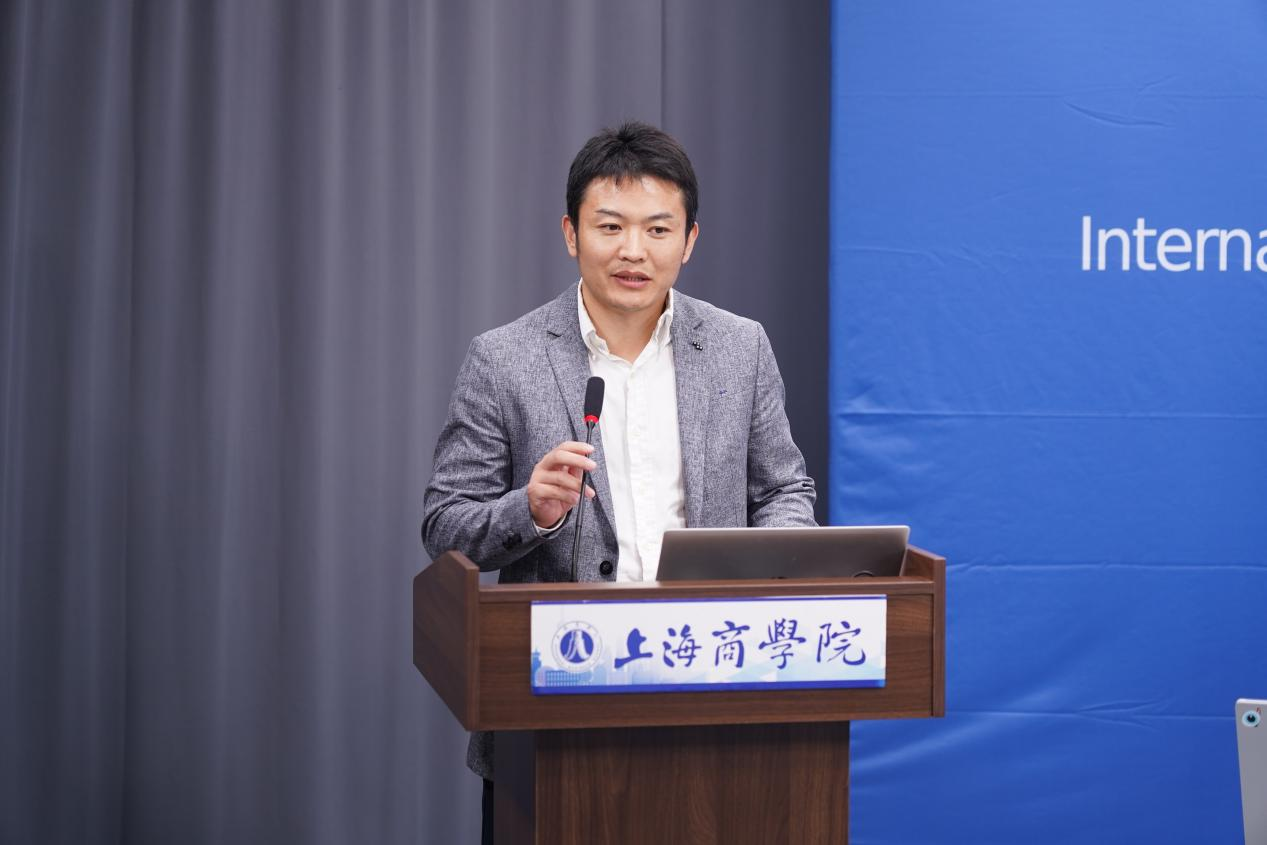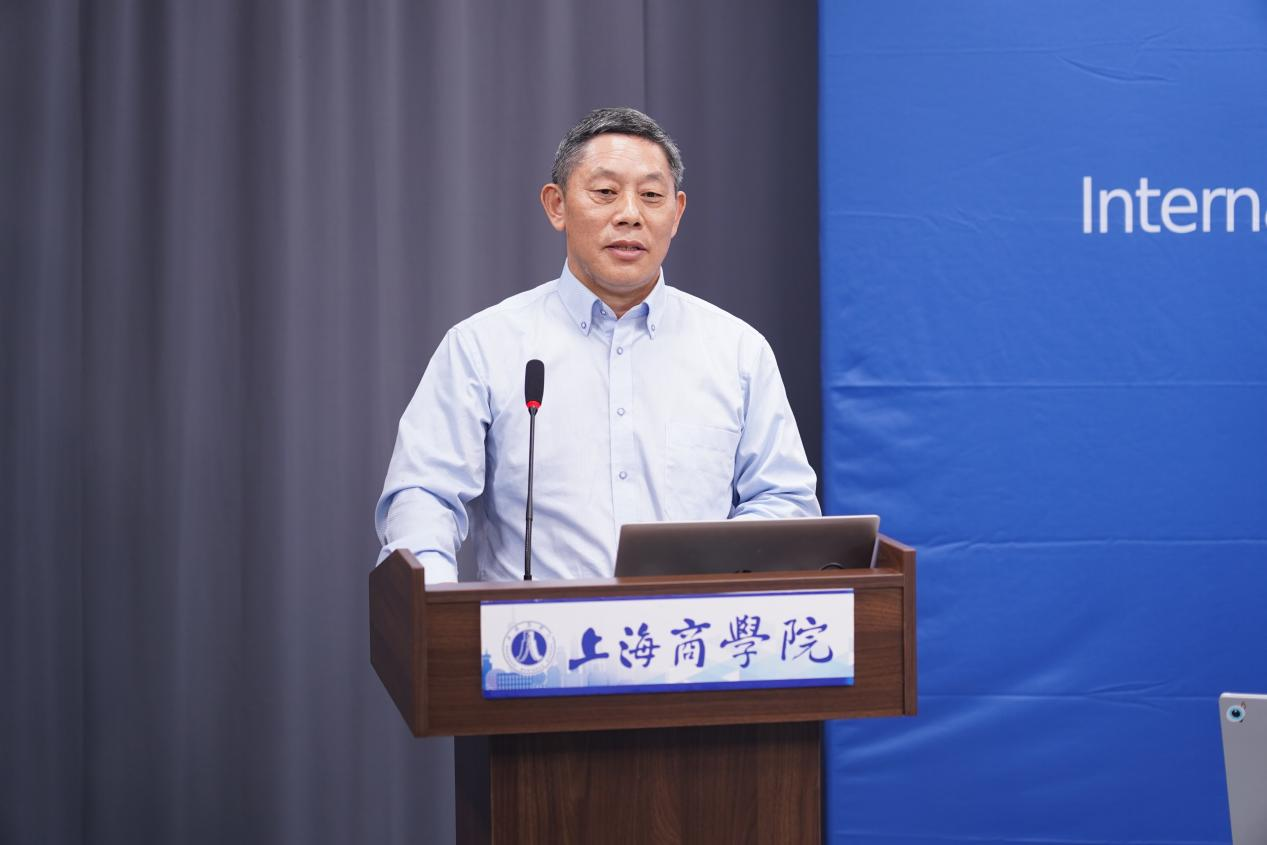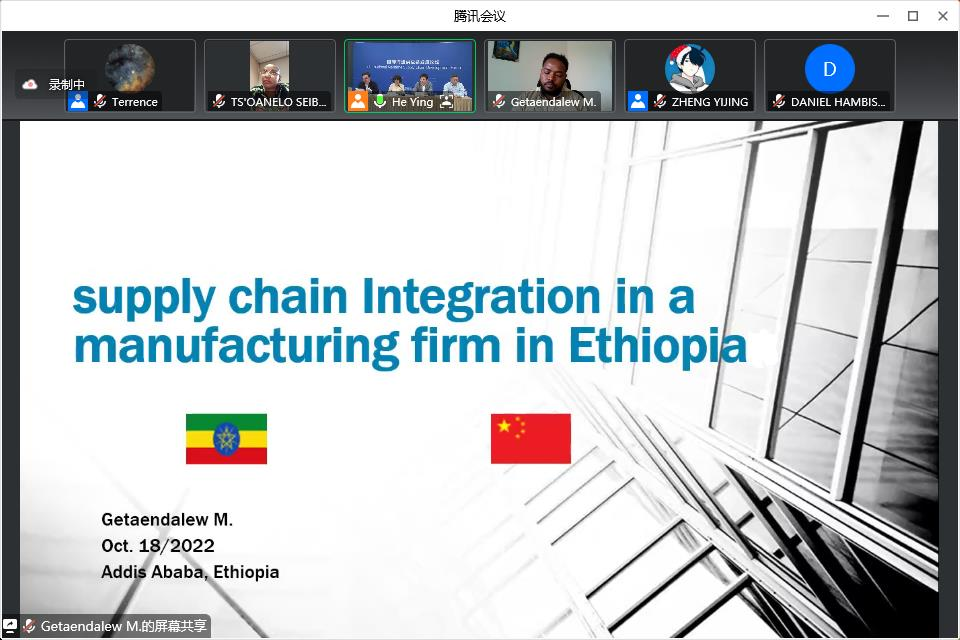On the evening of October 18, 2022 (GMT+8), the International Maritime Supply Chain Development Forum, co-organized by the College of Business Administration of our university and MOFCOM Training Base for International Business Officials (Shanghai) was successfully held. The forum is conducted in a combination of online and offline. Zhou Dequan, Chief Economist of Shanghai International Shipping Institute, Director of Shipping Development Research Institute, Director of China Shipping Prosperity Index Compilation Office, Yin Yanhai, Associate Professor, Head of Logistics Management Department of the College of Business Administration, Ts’oanelo Mildred Seiboko, Deputy Financial Manager of the Finance Department of the Ministry of Finance of Lesotho, and Getaendalew Menberu, Industrial Engineering Consultant of the Kaizen Excellence Center of Ethiopia, delivered keynote speeches respectively. Vice President He Ying presided over the forum, which was attended by 60 officials from the Seminar on Capacity and International Supply Chain Cooperation for Belt and Road Countries hosted by the Ministry of Commerce and organized by our university. They are from 15 countries including Turkey, Zambia, Lesotho, Kiribati, Sri Lanka, Ethiopia, Rwanda, South Africa, South Sudan, Nepal, Venezuela, Nigeria, Cambodia, Kenya, and Sierra Leone, etc.

In recent years, China has vigorously encouraged innovation in the organizational form of international production capacity and supply chain cooperation, widely used management technologies such as smart supply chain, green supply chain, shared supply chain and fast supply chain to embed in this field, and established and improved a smooth, orderly and efficient operation system of human flow, logistics, capital flow and information flow. Taking advantage of the opportunity of this seminar, the forum focused on the theme of international maritime supply chain development, gathering experts in this field to share experiences with each other, to further promote the cooperation between China and the B&R countries, and to inject new momentum into the development of the regional economy.
With the theme of "Analysis of the Development Trend of International Shipping", Zhou Dequan made a comprehensive introduction to the development trend of international shipping from 6 aspects, including the different market fluctuation status, different price fluctuation logic, digital development of international shipping, full development of international shipping, green development of international shipping, and continued strengthening of financial attributes. He believes that from the perspective of industry development, big data has enhanced transparency, and whoever has mastered big data first will have a head start inside the industry, but once big data is applied in the industry, the profitability of the industry will drop significantly.

Yin Yanhai introduced the development of the industrial chain from the trend analysis of international trade and international sea freight rates, he analyzed the price trend and explained the reasons for the surge in sea freight rates in the past two years and the decline in the past six months. He also pointed out the initiatives made by China in response to this situation, namely, the first is to enhance the ability to perform foreign trade and to further develop the international market; the second is to stimulate innovation and vitality; the third is to strengthen the ability to protect and promote the smooth flow of trade.

Ts’oanelo Mildred Seiboko, Deputy Financial Manager of the Finance Department of the Ministry of Finance of Lesotho, gave her views on "Challenges Facing Supply Chain Management in Developing Countries". She detailed the current status of supply chain development in Lesotho. Although the global demand for supply chain management persists, other developing countries may be experiencing the same supply chain derailment as Lesotho because of the constraints of various realities, and she hopes that in the future, there will be consistent and clear implementation of international business standards, key performance standards, proper planning, implementation, monitoring and evaluation strategies to unify and regulate this issue.

Getaendalew Menberu, Industrial Engineering Consultant of the Kaizen Excellence Center of Ethiopia, believes that manufacturing in developing countries faces unprecedented competitive pressures brought about by new business trends. The impact of globalization and intense competition has forced companies to focus on the entire supply chain integration (end-to-end) rather than on the effectiveness and efficiency of individual business functions within their respective operating sites. There is still a long way to go in terms of South-South cooperation mechanisms, and it is hoped that developing countries will help each other, have a high degree of integration within the industry, and balance development at all levels of economy, society and environment.

He Ying made a concluding speech for this forum by pointing out that, against the background of the global epidemic, the impact on countries is common, especially on the development of the international industrial chain and supply chain, which has brought certain negative impacts, but it is necessary to maintain an optimistic attitude and actively seek solutions to this problem. The effective operation of global industrial chain, supply chain and value chain is the key to the success of business trade. She sincerely hopes that all countries can integrate the development of the three chains to realize the vision of "overcoming difficulties together to meet a better tomorrow".
Written by: Sun Ya
Photos by: Sun Ya
Reviewed by: Chen Wei